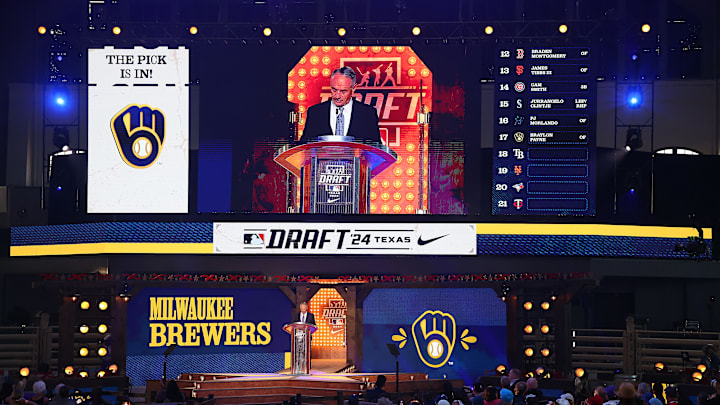The 2024 MLB Draft has come and gone and the Milwaukee Brewers have made 22 selections. How did the Brewers do with all those picks?
Before we get into the grades, we need to remember a standard caveat here. We won't truly know how good these picks were for at least another 3-5 years. Drafts can look good on paper now, or even look terrible on paper now but that can all flip on its head as players develop.
These initial grades can serve to help us understand how the Brewers did in the Draft in the moment and can be looked back on as a check of just how right...or wrong the Draft experts were at the time. With all that said, let's get into the report card.
Round 1 - Braylon Payne, OF
Grade: C+
Braylon Payne was a surprise selection in the first round. Most prognosticators had Payne outside the Top 50 prospects in the Draft and the Brewers took him at 17 overall. The Brewers are going to save a bunch of money in their signing bonus pool with this pick as Payne's a well under-slot selection. That's a large reason why they took him here.
There's still a lot of good in Payne's profile. He's incredibly fast, and should end up as an elite glove in centerfield because of it. He'll steal a ton of bases and he's still just 17 years old, so there's a lot of room for projection and growth.
However, there are some drawbacks. The hit tool is very raw and may never be above-average, which it'll need to be in order to make full use of his speed on the bases. Power is presently not there, but perhaps could show up with added strength as he physically matures and gets stronger. The throwing arm also is not great, it should be good enough for centerfield, but is nothing special.
Payne described himself as a five tool player and perhaps he could be in time. In order for this grade to improve, he'll have to develop into that. Payne will most likely not be moving quickly through the minor leagues and so much is dependent on that bat developing. Yes, the Brewers were looking to save money here, but there were other options on the board where they could've saved money with a little less risk in the profile.
